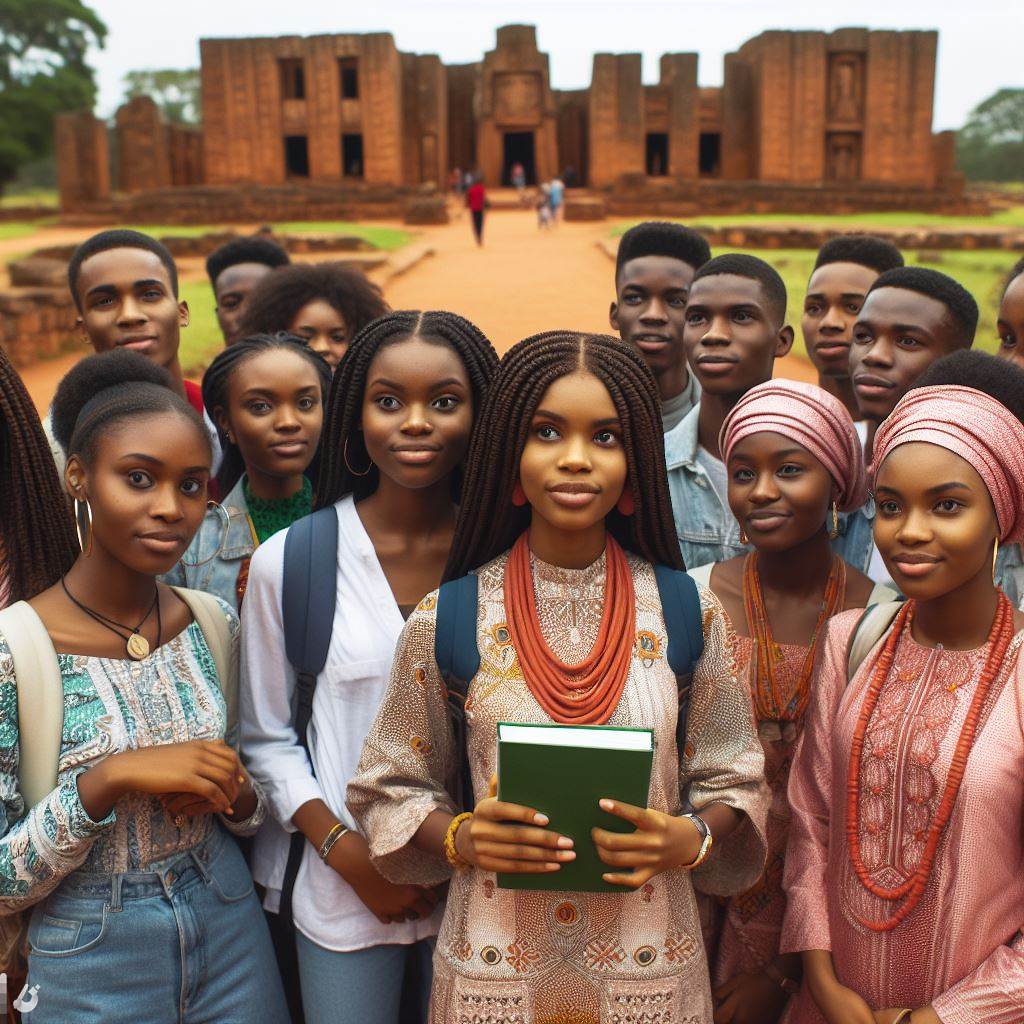Introduction
A. Importance of Field Trips and Practicals in Tourism Studies
Embarking on field trips and engaging in practical activities is integral to the holistic learning experience in tourism studies.
These immersive encounters offer students a firsthand understanding of the dynamic tourism industry, bridging the gap between theory and real-world applications.
B. Main Focus of the Blog Post
- Unlocking Real-World Insights: Field trips provide students with direct exposure to tourism operations, helping them comprehend industry intricacies beyond textbooks.
- Enhancing Practical Skills: Practicals enable students to apply theoretical knowledge, refining skills crucial for roles in hospitality, event management, and tour operations.
- Cultural and Environmental Sensitivity: Through on-site experiences, students cultivate cultural awareness and environmental responsibility, essential attributes in the diverse field of tourism.
- Networking Opportunities: Field trips often involve interactions with industry professionals, fostering networking opportunities that can be advantageous for future career endeavors.
In this blog post, we’ll delve deeper into each aspect, highlighting the transformative impact of hands-on experiences in shaping adept and socially responsible professionals in the field of tourism studies.
The Benefits of Field Trips in Tourism Studies
A. Practical Knowledge and Experience
Field trips in tourism studies are invaluable for students, providing hands-on learning experiences and practical insights.
- Students engage directly with industry settings.
- Real-world scenarios enhance problem-solving skills.
- Exposure to diverse tourism operations fosters adaptability.
- Students learn to navigate challenges within live environments.
B. Enhanced Understanding of the Industry
Field trips play a pivotal role in deepening students’ comprehension of the multifaceted tourism industry.
- Observing operations elucidates theoretical concepts.
- Interactions with professionals offer industry perspectives.
- Visiting diverse destinations broadens cultural awareness.
- Students witness the dynamic nature of tourism businesses.
C. Examples of Beneficial Field Trips
Certain field trips stand out as particularly advantageous for students pursuing tourism studies.
1. Cruise Ship Operations
- Insight into cruise management and hospitality.
- Understanding the logistics of onboard services.
2. Eco-Tourism Reserves
- Learning sustainable tourism practices.
- Exploring the intersection of conservation and tourism.
3. Event Management Firms
- Experiencing the planning and execution of events.
- Understanding the role of tourism in event industries.
4. Tourist Attractions and Theme Parks
- Studying visitor management and experience.
- Insight into the business side of popular attractions.
To sum it up, the benefits of field trips in tourism studies are multifaceted, equipping students with practical skills and a nuanced understanding of the industry’s intricacies.
Read: Rising Stars: Prominent Insurance Alumni from Nigeria
The Role of Practicals in Tourism Studies
A. Significance of hands-on learning opportunities in the tourism industry
In the field of tourism studies, practicals play a vital role in providing hands-on learning opportunities to students.
These practical experiences are crucial for their overall development and future careers in the dynamic tourism industry.
One of the significant advantages of practicals is that they allow students to apply theoretical knowledge in real-world scenarios.
This practical approach enhances their understanding of key concepts and helps bridge the gap between classroom learning and industry practices.
B. How practicals help students to develop essential skills for their future careers
Practicals also enable students to develop essential skills that are highly valued in the tourism industry.
These skills include effective communication, problem-solving, teamwork, and customer service, among others.
Such skills are essential for students to succeed in their future careers as tourism professionals.
For example, students often participate in mock tours or role plays, where they act as tour guides or hospitality staff.
These practical activities help them improve their communication and customer service skills, as they interact with simulated tourists or guests.
Field trips are another crucial aspect of practicals in tourism studies.
Students are taken to various tourist destinations, hotels, or travel agencies to gain firsthand knowledge of the industry.
hese trips provide students with an opportunity to observe and analyze different tourism operations, understand customer expectations, and learn from industry experts.
Furthermore, practicals allow students to experience the challenges and realities of the tourism industry.
They get a chance to witness the day-to-day operations of hotels, travel agencies, or tour operators.
This exposure helps them develop a deep understanding of the industry’s inner workings and prepares them to adapt to the fast-paced and ever-changing nature of tourism.
C. Specific practical activities that are commonly included in tourism studies programs
In tourism studies programs, practicals are often integrated into coursework through experiential learning activities.
These activities can include creating marketing campaigns, developing tour itineraries, or organizing events.
By working on these projects, students gain valuable hands-on experience and learn to apply theoretical knowledge to practical situations.
Moreover, practicals provide an excellent opportunity for students to network with industry professionals.
Through internships, job placements, or industry events, students can establish connections that can open doors for future employment opportunities.
This networking not only helps students gain valuable industry insights but also enhances their employability after graduation.
In short, practicals play a crucial role in tourism studies by providing hands-on learning opportunities and facilitating the development of essential skills.
Whether through field trips, mock tours, or experiential learning activities, these practical experiences prepare students for their future careers in the tourism industry.
By bridging the gap between theory and practice, practicals contribute to a comprehensive and well-rounded education in tourism studies.
Read: Challenges and Solutions in Nigerian Management Education

Challenges and Solutions
Field trips and practicals are essential components of tourism studies, providing students with hands-on experience in the industry.
However, organizing these activities in Nigeria can present several challenges.
In this section, we will explore these challenges and discuss potential solutions to overcome them, emphasizing the importance of proper planning and risk management.
A. Potential challenges associated with organizing field trips and practicals in Nigeria
One major challenge of organizing field trips and practicals in Nigeria is the lack of resources and infrastructural limitations.
Limited transportation options, inadequate facilities, and poor road conditions can impede the smooth execution of these activities.
Moreover, the vastness of the country and the logistics involved in reaching specific destinations can pose significant challenges.
Another challenge associated with organizing field trips and practicals in Nigeria is the lack of financial resources.
Transform Your Career with Expert Guidance
Get personalized mentorship consulting that’s tailored to your unique path. Our expert advice is actionable and exclusive.
Get StartedFunding these activities can be a significant hurdle for educational institutions, especially considering the costs associated with transportation, accommodation, and entrance fees to tourist sites.
Limited budgets can restrict the number of trips that can be organized and may result in a compromised student experience.
B. Possible solutions to overcome these challenges
To overcome these challenges, collaboration with industry professionals and academic institutions is crucial.
By partnering with tourism companies and organizations, educational institutions can gain access to resources such as vehicles, accommodation, and specialized equipment.
This collaboration also allows students to interact with industry experts, enhancing their learning experience and exposure to real-world scenarios.
To overcome financial constraints, institutions can explore partnerships with sponsors or seek funding from government agencies, NGOs, or corporate organizations.
These entities often have a vested interest in promoting tourism education and may be willing to support these initiatives through grants or sponsorships.
Additionally, universities can allocate funds specifically for field trips and practicals as part of their annual budget, recognizing their importance in providing practical learning experiences.
C. Importance of proper planning and risk management for successful field trips and practicals
Proper planning and risk management are vital for successful field trips and practicals.
A detailed itinerary should be developed, outlining the objectives, activities, and duration of the trip.
This plan should also account for potential risks and challenges, including weather conditions, health and safety concerns, and cultural sensitivities.
Conducting thorough risk assessments and implementing appropriate safety measures will help ensure the well-being of participants.
In general, organizing field trips and practicals in Nigeria can be challenging due to limited resources, infrastructural limitations, and financial constraints.
However, collaboration with industry professionals and academic institutions, diligent planning, and effective risk management can help overcome these challenges.
By providing students with practical experiences and exposure to the tourism industry, educational institutions can enhance the quality of tourism studies and prepare students for successful careers in the field.
Read: Case Studies: Successful IRM Implementations in Nigerian Varsities
Best Practices for Organizing Field Trips and Practicals
Field trips and practicals are vital components of tourism studies, providing students with hands-on experience and a deeper understanding of the industry.
However, to ensure their success, careful planning and execution are crucial. Here are some best practices:
A. Plan and Execute Effectively
- Thoroughly research and select suitable destinations and activities.
- Create a detailed itinerary and communicate it to all participants.
- Consider the logistics, transportation, and accommodation arrangements in advance.
- Assign specific roles and responsibilities to each participant to ensure smooth coordination.
B. Importance of Suitable Destinations and Activities
Choosing appropriate destinations and activities plays a vital role in enhancing the learning experience:
- Select destinations that align with the curriculum and specific learning objectives.
- Ensure the activities are hands-on, engaging, and interactive to maximize student involvement.
- Consider the cultural and environmental significance of the destinations to foster appreciation and understanding.
C. Emphasizing Safety, Coordination, and Reflection
Safety should be a top priority throughout the planning process and during the field trip or practical:
- Conduct thorough risk assessments prior to the trip and implement necessary safety measures.
- Assign trained and experienced chaperones who can handle emergencies and ensure participant safety.
- Maintain constant communication and coordination among participants, instructors, and organizers.
Reflection is a crucial component of effective field trips and practicals:
- Encourage students to reflect on their experiences through guided discussions and journaling.
- Provide opportunities for debriefing sessions to share insights, challenges, and lessons learned.
- Incorporate reflection into the assessment process to gauge the impact and effectiveness of the field trip.
D. Ensure Adequate Resources and Support
- Secure the necessary permits, licenses, and permissions for visits to specific locations or attractions.
- Allocate sufficient budgets for transportation, entry fees, meals, and any additional expenses.
- Collaborate with local experts, guides, or industry professionals to provide valuable insights and enhance the learning experience.
- Build partnerships with relevant organizations or businesses to access resources, expertise, and networking opportunities.
E. Evaluate and Continuously Improve
- Conduct post-trip evaluations to assess the success of the field trip and collect feedback from participants.
- Analyze the outcomes in relation to the learning objectives and make necessary adjustments for future trips.
- Consider incorporating innovative approaches, such as technology, to enhance the learning experience.
- Seek feedback from past participants and continuously update and improve the field trip program.
In review, organizing field trips and practicals in tourism studies requires careful planning, coordination, and emphasis on safety and reflection.
By following these best practices, educators can ensure meaningful and impactful learning experiences for students.
Read: Tourism’s Role in Nigeria’s Economy: An Academic View
Conclusion
A. Benefits of field trips and practicals in tourism studies
Field trips and practicals in tourism studies offer numerous benefits.
They provide students with hands-on learning experiences, allowing them to apply theoretical knowledge in real-life situations.
These experiences enhance their understanding and retention of concepts.
B. The need for universities and institutions to prioritize these hands-on learning experiences
Universities and institutions should prioritize these learning opportunities.
Field trips and practicals provide students with valuable industry exposure, helping them develop practical skills and gain industry insights. This equips them with a competitive edge in the job market.
C. Encouraging students to take full advantage of these opportunities for their personal and professional growth
It is essential for students to embrace these opportunities and make the most of them.
Field trips and practicals offer personal and professional growth by building confidence, networking, and fostering teamwork skills.
Students can establish meaningful connections with professionals and gain practical knowledge that cannot be obtained from textbooks alone.
It is crucial for students to actively participate and engage during field trips and practicals.
By doing so, they can develop a deep understanding of the tourism industry while also gaining practical skills and experience.
These experiences can shape their future careers, making them more competent professionals.
In the end, field trips and practicals in tourism studies are invaluable.
Universities and institutions should prioritize these hands-on learning experiences to better prepare students for their future careers.
Students should seize these opportunities and fully embrace the personal and professional growth they offer.




